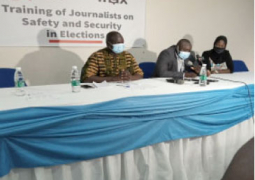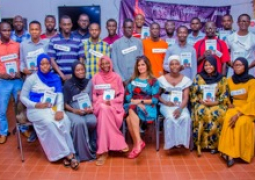The pilot project is meant to empower three communities in Lower River Region with Association of Farmers Educators Traders (AFET) being the implementing agency.
The project is expected to last for one year (from November 2020 to October 2021). Since its inception, the project has implemented series of activities geared towards empowering rural farmers through strengthening agricultural production and productivity in LRR.
However, the project implementation has gone half way of the expected period of the duration.
Dawda Kujabi, AFET secretary general said the project is titled: Promoting Vegetable Production for Nutrition, Income Generation and Biodiversity by Women Farmers in the Lower River Region (LRR).
He added that it aims to empower women gardeners by improving their earnings through vegetable production.
According to SG Kujabi, the project seeks to mitigate the adverse impacts of climate change on women farmers in 3 communities by strengthening their vegetable garden schemes and building their capacities to implement climate smart agricultural practices to offset their traditional occupations of rice farming.
He added that the project also aims to mitigate climate change impact through smart agricultural practices and diverse friendly perimeter fence of the vegetable gardens as well as provide technical and material support (compost, input and equipment) to 280 target beneficiaries.
It also aims to build capacities of 141 female and youth on good governance, food processing and preservation, marketing, compost making and preparation of non chemical pesticides.
Among the achievements of the project, he said, are the erection of 1200 meters perimeter fence and rehabilitated 6 old wells. They have also trained 21 participants (youth and women) on good governance and democratization process.
Read Other Articles In National News

60 Journalists trained on Safety, Security Reporting in Elections
Oct 21, 2021, 11:51 AM



